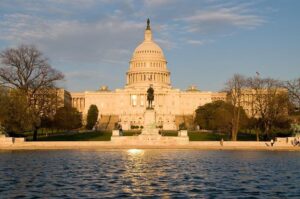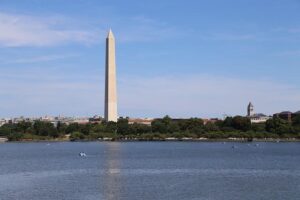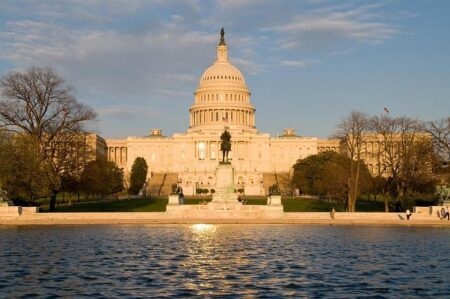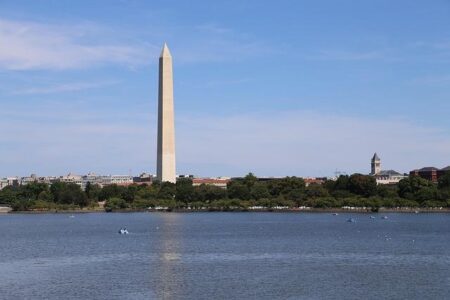National Guard Deployment in Washington, DC: Analyzing Security Measures Amid Political Turmoil
Background and Rationale for National Guard Activation in the Capital
Following the contentious 2020 presidential election, Washington, DC witnessed a surge in political unrest and public demonstrations. In response to escalating security threats and the potential for violent outbreaks, the federal government authorized the mobilization of National Guard troops to the city. This strategic deployment aimed to reinforce law enforcement capabilities, safeguard federal landmarks, and maintain civil order during a period marked by intense political polarization and uncertainty.
Primary factors driving this decision included:
- Protecting vital government sites such as the Capitol building and the Executive Mansion.
- Ensuring stability during sensitive political transitions and high-profile events.
- Acting on intelligence indicating possible orchestrated disturbances or violent acts.
- Affirming federal commitment to uphold democratic institutions amid disputed election outcomes.
| Parameter | Information |
|---|---|
| Activation Period | January 2021 |
| Mission Focus | Securing federal properties and mitigating unrest |
| Force Size | Several thousand National Guard personnel deployed |
| Political Environment | Post-election disputes and heightened tensions |
Effects of National Guard Deployment on Public Safety and Order
The presence of National Guard units in Washington, DC has played a crucial role in reinforcing security frameworks and stabilizing public order. Their deployment serves as a deterrent against unlawful activities, signaling a robust governmental stance on maintaining peace. In collaboration with local police, the Guard has been instrumental in crowd management, protecting infrastructure, and preventing escalation during demonstrations.
Beyond immediate security tasks, the National Guard contributes a disciplined and coordinated approach to crisis response. Their specialized training facilitates swift containment of volatile situations, enhancing overall emergency preparedness. Key advantages of their involvement include:
- Improved intelligence coordination and situational awareness.
- Rapid deployment capabilities in response to emerging threats.
- Provision of medical support and logistical assistance under civil authority.
| Function | Role Description |
|---|---|
| Patrol Operations | Discouraging illegal assemblies and disturbances |
| Infrastructure Defense | Securing key government buildings and assets |
| Emergency Response | Supporting medical aid and logistical needs |
Perspectives from Political Figures and Community Representatives
The National Guard’s deployment has elicited diverse reactions from political leaders and community members alike. Democratic officials have often criticized the move, viewing it as an excessive militarization that risks inflaming tensions rather than alleviating them. Senate Minority Leader Chuck Schumer described the decision as setting a “concerning precedent that could transform the capital into a militarized zone.”
Conversely, many Republican leaders have endorsed the deployment, emphasizing its necessity for preserving law and order amid volatile circumstances. They argue that such measures are vital to prevent violence and protect democratic processes.
Community voices have been equally varied. Civil rights organizations caution against potential infringements on constitutional freedoms and warn that a heavy security presence might intimidate peaceful protesters. Meanwhile, numerous local business owners and residents have expressed support, hoping the increased security will deter violence and foster a safer environment conducive to economic recovery.
- Civil Rights Advocates: Concerned about potential suppression of civil liberties.
- Democratic Politicians: Oppose militarization of public spaces.
- Republican Politicians: Advocate for strong security measures.
- Community Leaders and Business Owners: Hold mixed views balancing safety and disruption.
| Group | Stance | Main Concerns |
|---|---|---|
| Civil Rights Organizations | Opposition | Risk of rights violations |
| Democratic Lawmakers | Criticism | Militarization and escalation |
| Republican Lawmakers | Support | Restoring order and security |
| Local Businesses | Mixed | Balancing safety with economic impact |
Guidelines for Balancing Security and Democratic Freedoms During Civil Unrest
Addressing civil disturbances requires a nuanced approach that respects constitutional rights while ensuring public safety. Authorities should emphasize open and transparent communication with affected communities to foster trust and reduce tensions. Employing non-lethal crowd control techniques—such as sound-based deterrents or controlled use of tear gas—should be reserved for situations where de-escalation efforts fail.
Involving community leaders and civil rights advocates in planning and oversight can promote cooperation and help prevent abuses. The deployment of National Guard forces must be governed by strict rules of engagement that uphold democratic principles. Independent monitoring bodies can provide accountability and ensure adherence to legal standards.
| Core Principle | Explanation |
|---|---|
| Proportionality | Apply the least force necessary to maintain peace. |
| Transparency | Provide clear reporting and accountability for actions taken. |
| Community Engagement | Collaborate with local leaders to address underlying issues peacefully. |
| Rights Protection | Safeguard constitutional freedoms throughout security operations. |
Final Thoughts
The activation of the National Guard in Washington, DC represents a significant response to unprecedented political and social challenges. While aimed at preserving order and protecting democratic institutions, this measure also raises important questions about civil liberties and the appropriate use of military forces in domestic settings. Ongoing evaluation and dialogue will be essential to navigate these complexities and ensure that security efforts align with the values of a democratic society.






